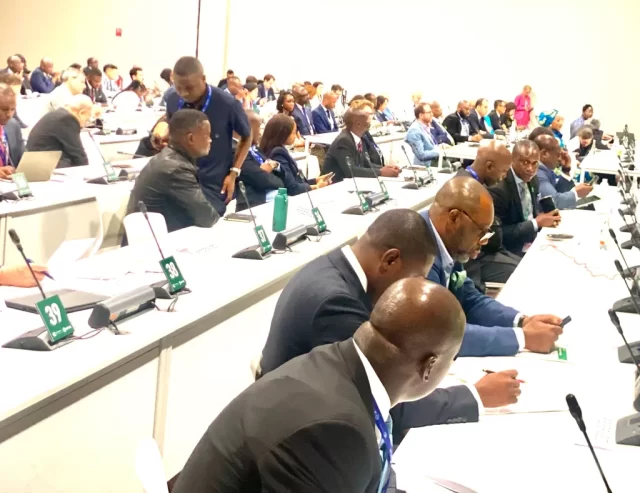By Oforiwa Darko
The window to cap global warming at 1.5°C is rapidly narrowing, with the devastating impacts of record-breaking temperatures and extreme weather events intensifying daily.
A high-level ministerial session has therefore been held on the sidelines of COP 28 in Dubai, to deepen discussions on the global south’s efforts towards addressing climate change for a sustainable future for all.
Discussions were focused on how urgent it is for the world to incorporate transformative measures in energy, industry, transport, food, agriculture and forestry systems to help limit the global temperature rise to the 1.5°C target.
Efforts being made at both local and international levels to ensure a rapid and systematic move to drastically reduce emissions and climate resilient pathways were also highlighted.
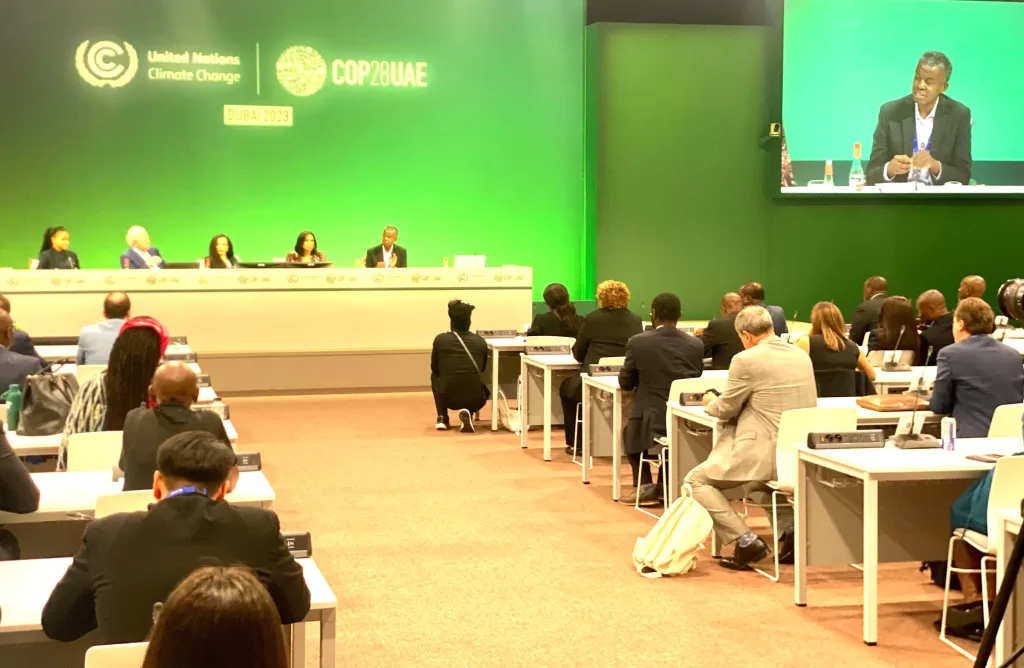
Organized by Sustainable Energy For All (SEforALL), Global Energy Alliance for People and Planet (GEAPP), panelists at the meeting made recommendations on how leaders can take the right steps to better account for climate change, by halting activities that are undercutting effective climate action.
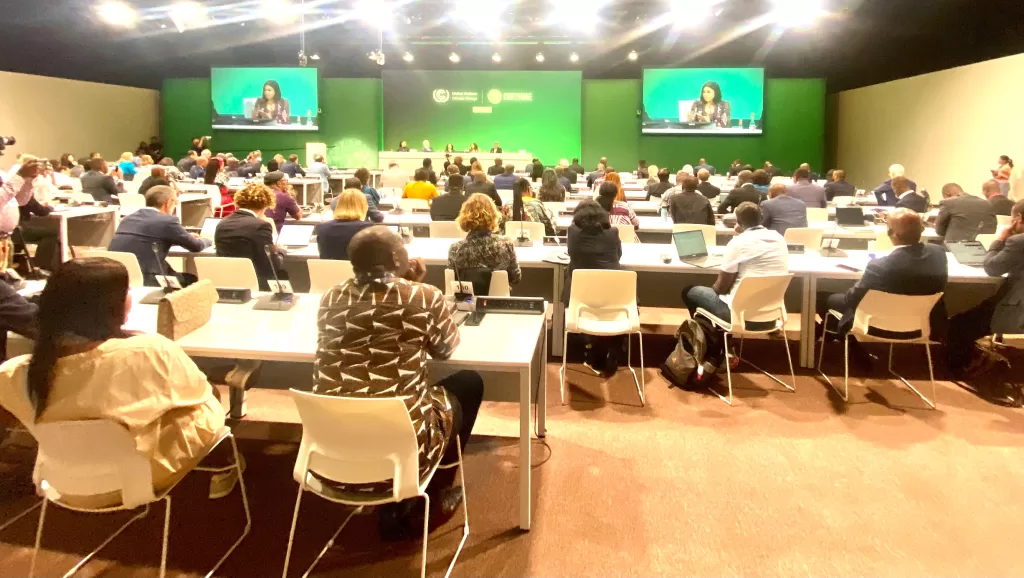
The UN Special Representative to the Secretary-General and United Nations Energy Co-Chair and Chief Executive of Sustainable Energy for All, Damilola Ogunbiyi intimated that immediate measures are necessary to secure a sustainable future for generations to come.
Across the Global South, there is a stark reality of less investment directed towards renewable energy since the Paris Agreement. For this reason, Damilola Ogunbiyi further added that “Sustainable Energy for All” is developing new ways to create access to energy financing in developing countries.
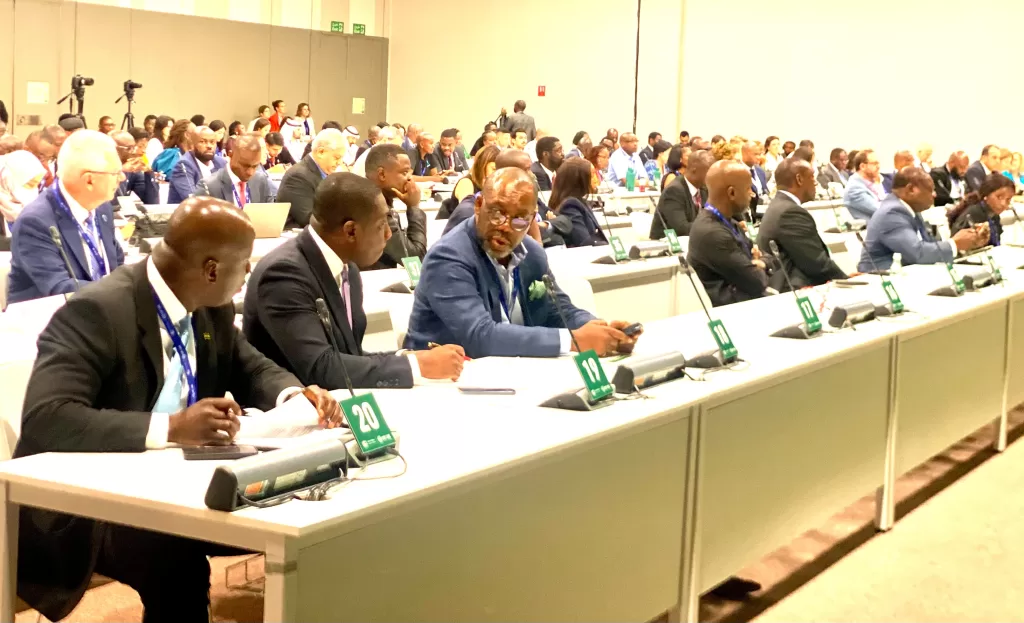
Tagged “From Concept to Impact: Energizing Progress in the Global South’s Energy Transition and Investment Pathways”, Ghana’s Energy Minister, Mathew Opoku Prempeh, and Lands and Natural Resources Minister, Samuel Abu Jinapor were among ministerial teams from the Global South who represented their countries at the dialogue session.
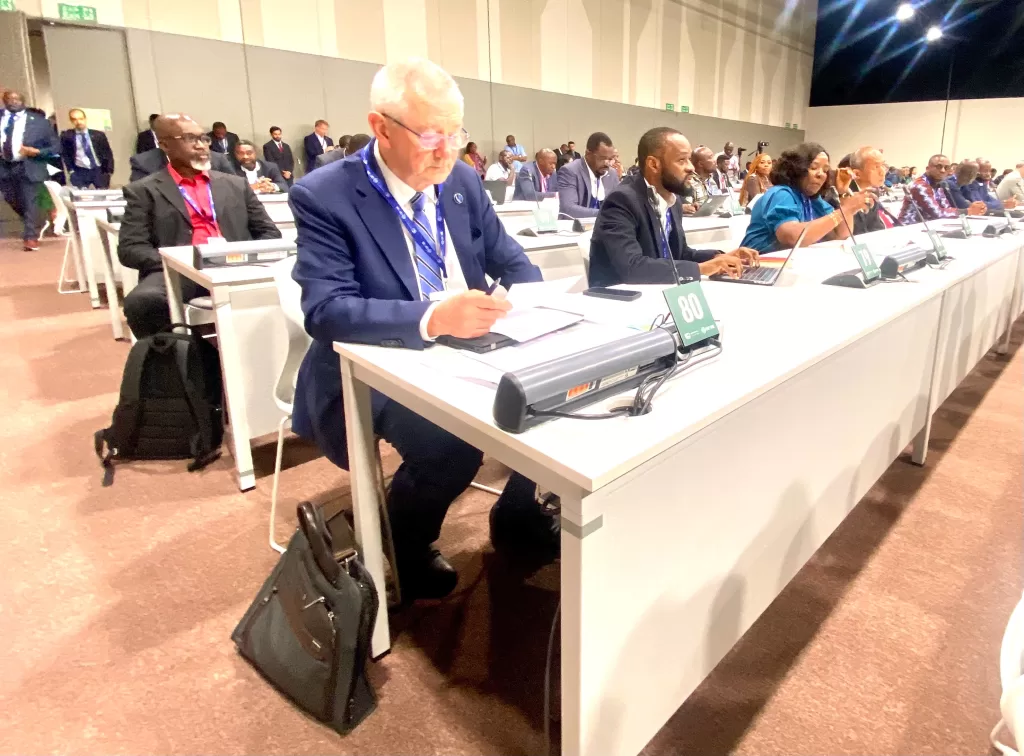
In 2022, the Global South, which represents 85% of the global population, received only 20% of the world’s clean energy investments, despite many of these countries having abundant wind and solar resources. The International Energy Agency forecasts, the world’s total renewable-based power capacity to increase 50% between 2019 and 2024.

